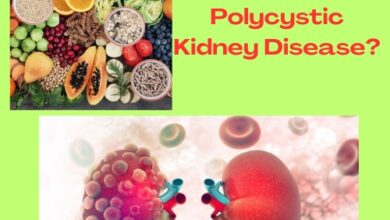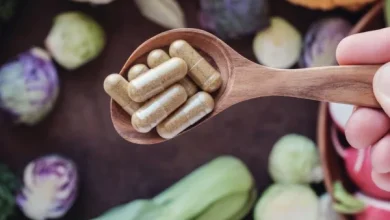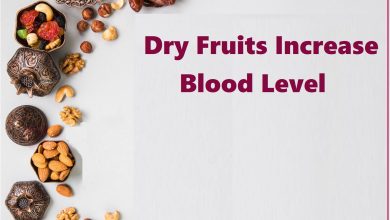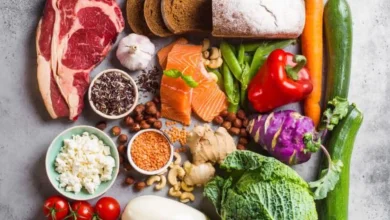This Dietician Is Sharing Her Number One Food Recommendation For Older Adults, And The Health Benefits Are Endless
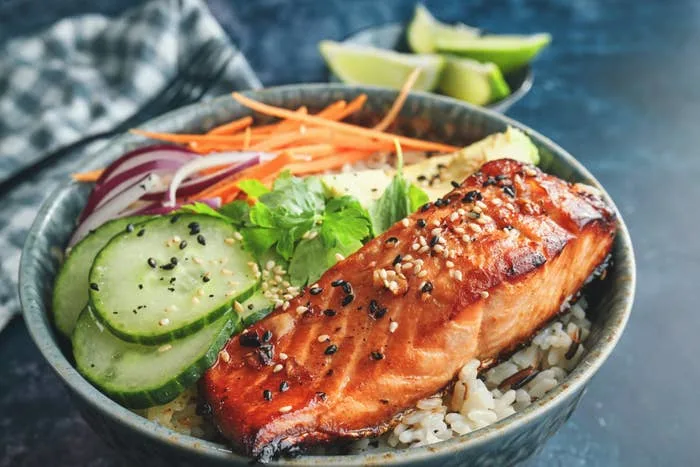
Our lives feel a little different in every decade. Many of us can relate to needing a lot more sleep (and fewer alcoholic beverages) in our 30s after having limitless energy in our 20s even after four hours of sleep and a few margaritas. Our bodies and nutritional requirements change from the minute we are born, so it makes sense that as we age, we require different amounts of particular foods.
According to Kimberly Gomer, a registered dietitian and former director of nutrition at the Pritikin Longevity Center, some meals may aid with energy levels as we age. However, diet can also be important in preventing illness. “Inflammation can be a major factor in all illnesses, including dementia, diabetes, cancer, heart disease, and obesity,” the speaker stated. As we become older, the way that inflammation responds in our bodies seems to get worse, leading to illness and discomfort. As we age, keeping good physical and mental health requires eating an anti-inflammatory diet and avoiding inflammatory foods.
The 1 food you should eat more of as you age
High-quality fatty protein, like salmon, is recommended by the experts we spoke with if you’re searching for a single food that can make a big difference in your health. “Long-chain omega-3 polyunsaturated fatty acids, such as EPA (eicosapentaenoic acid) and DHA (docosahexaenoic acid),” are abundant in fatty fish, including salmon, according to board-certified primary care physician Dr. Kevin Cooke, who specializes in longevity medicine and brain function. “To increase omega-3 intake, which supports brain health and reduces inflammation, older adults should aim to include these in their diet at least twice a week.”
Gomer continued, “We need healthy fat for hormones and fat-soluble vitamins, and protein for the maintenance and strength of our muscles.” “We will naturally lose muscle as we age—if we don’t use it, we won’t have it,” the speaker stated. And as we get older, a lot of things might happen to us that make us less inclined to exercise and maintain our muscle mass. To function, all of our cells—including those in our brains—need good fats. We may experience bodily and mental problems if we don’t give them.
Registered dietician Edwina Clark continued, “If salmon isn’t your thing, there are other high-quality protein sources you can try: skinless chicken, eggs, and tofu.” It’s crucial for people 65 and older in particular. According to studies, older persons should consume 1-1.2 grams of protein per kilogram of body weight, which is more than the 0.8 grams per day that is often advised for adults. In light of this, any of the foods on the list may help you fulfill your requirements.
Other foods to consider adding to your plate
As you become older, Cooke pointed out that eating more protein and healthy fat is undoubtedly a good idea, but leafy greens, like spinach or kale, are also wise additions, particularly if you’re not currently consuming a lot of them. He stated, “Leafy greens are high in antioxidants such as zeaxanthin and lutein.” “These are also an excellent source of B vitamins, which are necessary for normal brain function and include folic acid, niacin, riboflavin, and vitamin B6.”
Clark suggests pomegranates as well. “Pomegranates contain a group of compounds called ellagitannins and are a rich source of antioxidants for fighting oxidative damage,” the spokesperson stated. Some people’s gut flora transform ellagitannins into urolithin A, which has been found to counteract some of the negative effects of aging, such as muscle loss. In addition to being high in fiber, pomegranates also help control blood sugar, encourage fullness, and stave against colon cancer.
How nutritional needs differ for men and women
Different nutritional requirements apply to men and women at different stages of life, including aging. According to Cooke, “men typically need a higher protein intake to maintain muscle mass, which can decline with age.” Because of their greater muscular mass and faster metabolic rates, they also often have higher caloric needs, albeit these requirements diminish with age. Men should take more zinc since it helps with immune system and prostate health.
Women’s bone health becomes increasingly dependent on calcium and vitamin D, particularly after menopause when osteoporosis risk rises. Iron is still necessary for energy levels even after menopause, according to Cooke. “The cardiovascular and cognitive systems depend on folate.” Furthermore, the phytoestrogens in soy products can lessen the symptoms associated with menopause.
What about supplements?
You might be wondering if you can utilize supplements to make up for any nutritional shortages because they seem to be ubiquitous these days. Gomer stated that although the effectiveness of supplements is still up for debate, they generally don’t hurt as long as a food-first strategy is followed.
“Eating is always the best option if a person has a known deficiency because food contains nutrients that the body can absorb and accept more readily,” the expert advised. However, supplements are sometimes required. That ought to be taken after a baseline-setting lab test, following which the appropriate supplement and dosage should be established. For instance, a lot of my clients have low levels of vitamin D, which is hard to get from diet alone, so taking a supplement could be beneficial.
As we become older, eating can seem more difficult, but it doesn’t have to be. You may be certain that you’re in quite good health if you’re eating salmon a couple times a week and squeezing in a few handfuls of leafy greens as well. HuffPost was the original home of this article.

